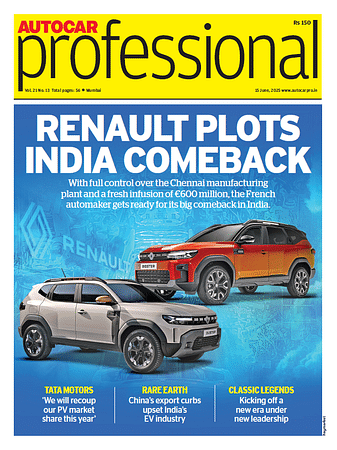Future Audi cars to use Nvidia’s ‘deep learning’ to tackle complexities of driving
The first phase of this collaboration focuses on Nvidia Drive PX, an AI platform for self-driving cars, which uses trained AI neural networks to understand the surrounding environment, and determine a safe path forward.
Technology company Nvidia and Audi have announced that they are collaborating to put advanced AI (artificial intelligence) cars on the road starting in 2020.
Speaking at the opening keynote at CES 2017 in Las Vegas, Nvidia founder and CEO Jen-Hsun Huang, joined on stage by Audi of America president Scott Keogh, said future Audi car models will use deep learning to tackle the complexities of driving.
The first phase of this new collaboration focuses on Nvidia Drive PX, an AI platform for self-driving cars, which uses trained AI neural networks to understand the surrounding environment, and determine a safe path forward.
"Nvidia is pioneering the use of deep learning AI to revolutionise transportation," said Huang. "Audi's adoption of our DRIVE computing platform for AI cars will accelerate the introduction of next-generation autonomous vehicles, moving us closer to a future of higher driving safety and new mobility services."
Keogh said: "Audi drivers know the pinnacle of performance and technology. In our mutual pursuit for safer roads, the partnership between Audi and Nvidia will expand to deep learning and artificial intelligence to bring higher automation onto the road more quickly."
One of the highlights of CES 2017 are demos of an Audi Q7 piloted driving concept where passengers can ride in the vehicle's back seat, with no one behind the wheel.
Outfitted with a DRIVE PX 2 and running Nvidia DriveWorks software, the Q7 uses deep neural networks -- specifically, Nvidia PilotNet – which recognises and understands its changing environment while driving safely. The course will be modified during the demonstration, and features a variety of road surfaces, with and without lane markings, and a simulated construction zone requiring a detour.
In his keynote, Huang addressed how AI will anticipate the driver's needs – driving to the office in the morning and home at night, automatically opening and closing the garage door, and adjusting the climate to the individual's preferences, as well as being able to understand and respond to requests in a natural conversational language.
Nvidia and Audi, which have been collaborating for over a decade, first appeared together at CES seven years ago and announced a technology partnership that has steadily expanded. The results include the award-winning Audi MMI navigation and the Audi virtual cockpit, currently available across a wide range of the automaker's sedans, SUVs and sports cars. In the coming months, Audi will roll out its new A8, the world's first Level 3 automated vehicle with its Traffic Jam Pilot system, powered by zFAS, which integrates NVIDIA hardware and software.
RELATED ARTICLES
Horse Powertrain reveals integrated hybrid powertrain
Unit combines Horse Powertrain’s new 1.8-litre ‘HR18’ engine, its DB45S transmission, a 1.4kWh battery, and 50kW 5DH mot...
BMW Group to use natural fibre composites in its future models
Following several years of development and in-depth research, the BMW Group has reached series maturity of natural fibre...
Nissan reinvents Leaf as a sleek electric SUV with 600km range
First launched as a hatchback in 2010, the third-generation Leaf is unrecognisable compared with its predecessors. The n...





 By Autocar Professional Bureau
By Autocar Professional Bureau
 06 Jan 2017
06 Jan 2017
 3108 Views
3108 Views








